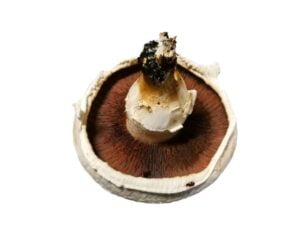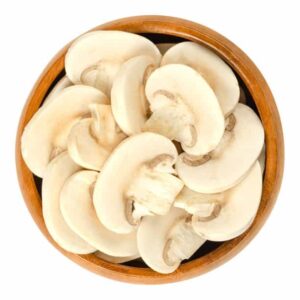Agaricus, commonly known as the white button mushroom, is a widely consumed and versatile fungi species that has garnered attention for its potential health benefits. This unassuming mushroom, often used in salads, soups, and various culinary dishes, has been the subject of scientific research, revealing a range of positive effects on human health. Agaricus Mushroom Benefits encompass a multitude of advantages, from bolstering the immune system to promoting heart health, making them a valuable addition to a balanced diet.
Immune System Support
Agaricus mushrooms contain various bioactive compounds, including beta-glucans, which have been shown to enhance immune system function. These compounds stimulate immune cells, such as macrophages and natural killer cells, helping the body defend against pathogens and potentially reducing the risk of infections. A study published in the “International Journal of Medicinal Mushrooms” in 2015 found that Agaricus extract had significant immunomodulatory effects, making it a promising natural way to boost immune function.
Furthermore, the unique composition of Agaricus mushrooms contributes to their immune-boosting properties. Apart from beta-glucans, these fungi contain specific polysaccharides and lectins that play crucial roles in regulating the immune response. Research indicates that these compounds can enhance the production of cytokines, signaling proteins that coordinate communication among immune cells.
Additionally, the presence of ergosterol, a precursor to vitamin D, in Agaricus mushrooms may further contribute to their immunomodulatory effects, as vitamin D is known to play a key role in supporting overall immune function. The synergistic combination of these bioactive compounds underscores the potential of Agaricus mushrooms as a valuable natural resource for fortifying the immune system against various threats.
Antioxidant Properties
Antioxidants play a crucial role in neutralizing harmful free radicals in the body, which can lead to oxidative stress and various chronic diseases. Agaricus mushrooms are a rich source of antioxidants, particularly ergothioneine and glutathione. These compounds help protect cells from damage and reduce the risk of conditions such as cardiovascular disease and cancer. A study published in “Food Chemistry” in 2013 highlighted the potent antioxidant activity of Agaricus mushrooms.
Furthermore, Agaricus mushrooms exhibit distinctive antioxidant properties due to their high content of selenium, a trace element with powerful antioxidant effects. Selenium works synergistically with ergothioneine and glutathione to enhance the overall antioxidant defense system in the body.
This unique combination of antioxidants in Agaricus mushrooms not only scavenges free radicals but also supports the body’s ability to repair and regenerate cells, promoting overall health. The diverse array of antioxidants present in Agaricus mushrooms makes them a valuable dietary addition for bolstering the body’s defense against oxidative stress and maintaining optimal well-being.
Blood Sugar Regulation
 Some research suggests that Agaricus mushrooms may have a positive impact on blood sugar control. A study published in the “Journal of Medicinal Food” in 2016 found that Agaricus blazei extract exhibited antihyperglycemic effects in diabetic rats. While more research in humans is needed, these findings hint at the potential for Agaricus mushrooms to help manage blood sugar levels.
Some research suggests that Agaricus mushrooms may have a positive impact on blood sugar control. A study published in the “Journal of Medicinal Food” in 2016 found that Agaricus blazei extract exhibited antihyperglycemic effects in diabetic rats. While more research in humans is needed, these findings hint at the potential for Agaricus mushrooms to help manage blood sugar levels.
Furthermore, the potential blood sugar-regulating properties of Agaricus mushrooms may be attributed to specific compounds found within them. These mushrooms are rich in bioactive compounds such as beta-glucans, polysaccharides, and phenolic compounds, which have been linked to improved insulin sensitivity and glucose metabolism.
Additionally, research indicates that these bioactive compounds may play a role in reducing oxidative stress and inflammation, factors that can contribute to insulin resistance. While the existing evidence is promising, further studies are crucial to fully understand the mechanisms through which Agaricus mushrooms exert their effects on blood sugar regulation in humans.
Anti-Inflammatory Effects
Inflammation is a common factor in many chronic diseases, and Agaricus mushrooms may help reduce inflammation in the body. Compounds found in Agaricus, such as ergosterol peroxide, have been shown to possess anti-inflammatory properties. A study published in “Biochimica et Biophysica Acta (BBA) – Molecular Basis of Disease” in 2014 demonstrated that Agaricus extract could inhibit inflammatory responses in macrophages, suggesting its potential as a natural anti-inflammatory agent.
Furthermore, the anti-inflammatory effects of Agaricus mushrooms can be attributed to the presence of specific compounds, such as beta-glucans and polysaccharides. These bioactive molecules exhibit immunomodulatory properties, influencing the activity of immune cells and contributing to the regulation of inflammatory processes.
The unique combination of ergosterol peroxide, beta-glucans, and polysaccharides in Agaricus mushrooms showcases a multifaceted approach in mitigating inflammation, making them a promising natural remedy for conditions associated with chronic inflammatory responses.
Weight Management
Maintaining a healthy weight is essential for overall well-being, and Agaricus mushrooms may contribute to weight management efforts. Some studies have suggested that Agaricus extract can influence lipid metabolism and reduce body weight gain in animal models. While more research is needed in humans, these findings raise the possibility of Agaricus mushrooms as a dietary aid for weight control.
Furthermore, Agaricus mushrooms are rich in bioactive compounds, such as beta-glucans and polyphenols, which exhibit potential metabolic benefits. Beta-glucans, for instance, have been associated with improved insulin sensitivity and reduced inflammation, factors that play a crucial role in regulating body weight.
Additionally, the polyphenolic compounds present in Agaricus mushrooms may contribute to the modulation of adipocyte function and fat metabolism. While these findings are promising, it’s important to note that more human studies are necessary to fully elucidate the mechanisms and effectiveness of Agaricus mushrooms in supporting weight management strategies.
Cardiovascular Health
 Maintaining a healthy cardiovascular system is vital for overall health, and Agaricus mushrooms may contribute to heart health. Research has indicated that the bioactive compounds in these mushrooms can help lower cholesterol levels and reduce blood pressure. A study published in the “Journal of Agricultural and Food Chemistry” in 2010 demonstrated the potential of Agaricus bisporus to inhibit the activity of angiotensin-converting enzyme (ACE), which plays a role in blood pressure regulation.
Maintaining a healthy cardiovascular system is vital for overall health, and Agaricus mushrooms may contribute to heart health. Research has indicated that the bioactive compounds in these mushrooms can help lower cholesterol levels and reduce blood pressure. A study published in the “Journal of Agricultural and Food Chemistry” in 2010 demonstrated the potential of Agaricus bisporus to inhibit the activity of angiotensin-converting enzyme (ACE), which plays a role in blood pressure regulation.
Additionally, Agaricus mushrooms contain antioxidants such as ergothioneine and selenium, which play a crucial role in reducing oxidative stress and inflammation within the cardiovascular system. These compounds contribute to the overall maintenance of vascular health by protecting the blood vessels from damage caused by free radicals.
Furthermore, the presence of beta-glucans in Agaricus mushrooms has been associated with improved lipid profiles, promoting the balance of cholesterol levels. As a result, the unique combination of bioactive components in Agaricus mushrooms underscores their potential as a natural dietary supplement for supporting cardiovascular well-being.
Anticancer Properties
Emerging studies have also suggested that Agaricus mushrooms may have potential anticancer properties. Compounds like beta-glucans and ergosterol peroxide found in Agaricus have been investigated for their ability to inhibit the growth of cancer cells and stimulate the immune system’s response to cancer. While more research is needed in this area, the preliminary findings are promising.
Furthermore, the unique properties of beta-glucans in Agaricus mushrooms have garnered attention for their potential in modulating the body’s inflammatory response and promoting apoptosis, a process that leads to programmed cell death in cancer cells.
Additionally, ergosterol peroxide, another compound present in Agaricus, has exhibited anti-angiogenic effects, which may hinder the formation of blood vessels that support tumor growth. While these observations are encouraging, ongoing research is crucial to elucidate the specific mechanisms through which Agaricus mushrooms exert their anticancer effects and to determine their potential as a complementary therapeutic approach in cancer treatment.
Gut Health and Prebiotic Effects
The gut microbiome plays a crucial role in overall health, and Agaricus mushrooms may contribute to a healthy gut. Some research suggests that these mushrooms can act as prebiotics, providing nourishment for beneficial gut bacteria. This may help maintain a balanced gut microbiome, which is linked to various aspects of health, including digestion and immune function.
Moreover, Agaricus mushrooms contain unique compounds, such as beta-glucans and chitin, which are believed to play a key role in their prebiotic effects. These compounds serve as a source of nutrition for beneficial gut bacteria, promoting their growth and activity.
The interaction between these specialized compounds and the gut microbiota not only supports digestive health but also contributes to the modulation of the immune system, fostering a robust and balanced response. As research in this field advances, understanding the intricate mechanisms through which Agaricus mushrooms influence gut health may unveil new insights into optimizing overall well-being.
Nutrient Density
 Agaricus mushrooms are a low-calorie food source that provides essential nutrients such as vitamins (e.g., B vitamins, vitamin D), minerals (e.g., selenium, potassium), and dietary fiber. Including Agaricus mushrooms in your diet can be a smart way to increase nutrient intake while keeping calories in check.
Agaricus mushrooms are a low-calorie food source that provides essential nutrients such as vitamins (e.g., B vitamins, vitamin D), minerals (e.g., selenium, potassium), and dietary fiber. Including Agaricus mushrooms in your diet can be a smart way to increase nutrient intake while keeping calories in check.
Culinary Versatility
One of the most significant benefits of Agaricus mushrooms is their versatility in the kitchen. They can be used in a wide range of dishes, from soups and salads to stir-fries and omelets. This culinary adaptability makes it easy to incorporate these mushrooms into your diet and enjoy their potential health benefits without much effort.
Skin Health
The antioxidants and other bioactive compounds found in Agaricus mushrooms may have a positive impact on skin health. Antioxidants help protect the skin from oxidative stress and UV radiation, potentially reducing the signs of aging and promoting a healthy complexion.
The unique composition of bioactive compounds in Agaricus mushrooms, including beta-glucans and ergothioneine, further contributes to their skin health benefits. Beta-glucans possess immune-modulating properties that may support the skin’s defense mechanisms, while ergothioneine exhibits potent antioxidant effects, aiding in the neutralization of free radicals.
Bone Health
Agaricus mushrooms contain vitamin D, which is essential for calcium absorption and bone health. Adequate vitamin D intake is crucial for maintaining strong bones and preventing conditions like osteoporosis. Including Agaricus mushrooms in your diet can contribute to your daily vitamin D intake.
Furthermore, Agaricus mushrooms are rich in ergosterol, a precursor to vitamin D2. When exposed to sunlight or UV radiation, ergosterol in Agaricus mushrooms converts to vitamin D2, enhancing their bone health benefits. This unique quality makes Agaricus mushrooms a valuable dietary source of vitamin D for individuals who may have limited sun exposure, contributing to overall skeletal strength and resilience.
Additionally, the mushrooms contain other essential nutrients like phosphorus and magnesium, working synergistically with vitamin D to support optimal bone mineralization and density.
Digestive Health
The dietary fiber in Agaricus mushrooms can support digestive health by promoting regular bowel movements and preventing constipation. Additionally, their prebiotic properties may encourage the growth of beneficial gut bacteria, further enhancing digestive function.
Furthermore, Agaricus mushrooms contain unique compounds, such as beta-glucans and chitin, which have been shown to exert anti-inflammatory effects in the digestive tract. These compounds not only contribute to a healthy gut environment but also play a role in modulating the immune system within the digestive system, potentially reducing the risk of inflammatory bowel conditions.
Moreover, the high levels of antioxidants found in Agaricus mushrooms contribute to mitigating oxidative stress in the digestive system, thereby protecting the delicate balance of the gut microbiota. This dual action of promoting beneficial bacteria growth and reducing inflammation highlights the multifaceted impact of Agaricus mushrooms on digestive health.
Allergen-Free Protein Source
 For individuals with allergies to common protein sources like soy or nuts, Agaricus mushrooms can be a suitable alternative. They provide a source of plant-based protein that is free from many common allergens. Agaricus mushrooms are rich in unique compounds, such as beta-glucans and ergothioneine, which not only contribute to their allergen-free profile but also offer potential health benefits.
For individuals with allergies to common protein sources like soy or nuts, Agaricus mushrooms can be a suitable alternative. They provide a source of plant-based protein that is free from many common allergens. Agaricus mushrooms are rich in unique compounds, such as beta-glucans and ergothioneine, which not only contribute to their allergen-free profile but also offer potential health benefits.
Beta-glucans, known for their immunomodulatory properties, may support the immune system, while ergothioneine, a powerful antioxidant, could play a role in reducing oxidative stress. These distinctive qualities make Agaricus mushrooms not only a safe protein source for those with allergies but also a potentially valuable addition to a balanced and health-conscious diet.
Sustainability
Cultivating Agaricus mushrooms is relatively environmentally friendly compared to some other forms of agriculture. They can be grown on various substrates, including agricultural waste products, making them a sustainable food source.
Additionally, the mycelium of Agaricus mushrooms plays a vital role in nutrient cycling, enhancing soil fertility and promoting overall ecosystem health.
Nutritional Value of Agaricus Mushrooms (per 100 grams):
- Calories: Approximately 22 calories
- Protein: About 3.1 grams
- Carbohydrates: Roughly 3.3 grams
- Dietary Fiber: Around 1.6 grams
- Sugars: Approximately 1.9 grams
- Fat: About 0.3 grams
- Saturated Fat: Less than 0.1 grams
- Monounsaturated Fat: Less than 0.1 grams
- Polyunsaturated Fat: Less than 0.1 grams
Vitamins (per 100g):
- Vitamin D: Typically contains small amounts (not a significant source)
- Vitamin B2 (Riboflavin): About 0.3 milligrams (15% of the Daily Value)
- Vitamin B3 (Niacin): Approximately 3.6 milligrams (18% of the Daily Value)
- Vitamin B5 (Pantothenic Acid): About 1.5 milligrams (15% of the Daily Value)
- Vitamin B6 (Pyridoxine): Approximately 0.1 milligrams (6% of the Daily Value)
Minerals (per 100g):
- Potassium: About 318 milligrams (9% of the Daily Value)
- Phosphorus: Approximately 108 milligrams (11% of the Daily Value)
- Selenium: Roughly 8.2 micrograms (12% of the Daily Value)
- Copper: About 0.3 milligrams (15% of the Daily Value)
- Iron: Approximately 0.5 milligrams (3% of the Daily Value)
Other Nutrients:
- Beta-Glucans: Agaricus mushrooms are a notable source of these immune-enhancing polysaccharides.
- Antioxidants: Agaricus mushrooms contain various antioxidants, including ergothioneine and glutathione.
- Water Content: Approximately 92 grams (hydration level)
- Cholesterol: Agaricus mushrooms are naturally cholesterol-free.
- Glycemic Index: Agaricus mushrooms have a very low glycemic index, making them suitable for individuals monitoring their blood sugar levels.
Please note that the nutritional content may vary slightly depending on factors such as growing conditions and mushroom maturity. Agaricus mushrooms are a healthy addition to your diet, providing essential nutrients, fiber, and potential health benefits. They are low in calories and fat, making them a nutritious choice for various recipes.
Conclusion
In conclusion, Agaricus mushrooms offer a wealth of potential health benefits, including immune system support, antioxidant properties, blood sugar regulation, anti-inflammatory effects, and potential weight management benefits. While these studies provide promising insights, more research is needed to fully understand the mechanisms and confirm the health benefits in humans. Nevertheless, incorporating Agaricus mushrooms into your diet can be a delicious and nutritious way to promote overall well-being.
 Indulge in a flavor-packed vegetarian delight with Jamie Oliver’s “Garlic Mushroom Burgers.” This delightful recipe takes the humble mushroom to new heights, transforming it into a savory, mouthwatering burger that’s perfect for veggie lovers and meat-eaters alike. Bursting with umami from sautéed garlic mushrooms and complemented by creamy mayonnaise and fresh greens, these burgers are a true testament to the magic of plant-based cuisine.
Indulge in a flavor-packed vegetarian delight with Jamie Oliver’s “Garlic Mushroom Burgers.” This delightful recipe takes the humble mushroom to new heights, transforming it into a savory, mouthwatering burger that’s perfect for veggie lovers and meat-eaters alike. Bursting with umami from sautéed garlic mushrooms and complemented by creamy mayonnaise and fresh greens, these burgers are a true testament to the magic of plant-based cuisine.
Contraindications for Consuming Agaricus Mushrooms:
Allergies:
Individuals with known allergies to mushrooms should avoid consuming Agaricus mushrooms or any other mushroom variety to prevent allergic reactions.
Medication Interactions:
If you are taking medications or have specific health conditions, it’s advisable to consult with a healthcare professional before adding significant amounts of Agaricus mushrooms to your diet. Some compounds in mushrooms might interact with certain medications.
Digestive Sensitivity:
Some individuals may experience gastrointestinal discomfort or digestive issues after consuming mushrooms. If you have a history of such sensitivities, start with small quantities of Agaricus mushrooms to gauge your tolerance.
Autoimmune Diseases:
While Agaricus mushrooms are known for their immune-enhancing properties, individuals with autoimmune diseases should consult with a healthcare provider before incorporating them into their diet, as they may potentially stimulate the immune system.
Pregnancy and Breastfeeding:
Limited information is available regarding the safety of Agaricus mushroom consumption during pregnancy and breastfeeding. Pregnant or breastfeeding individuals should exercise caution and consult with a healthcare professional before adding them to their diet.
Hypersensitivity Reactions:
Although rare, hypersensitivity reactions to specific compounds in mushrooms have been reported. If you experience any adverse reactions such as skin rashes, itching, or difficulty breathing after consuming Agaricus mushrooms, seek medical attention immediately.
Wild Mushroom Identification:
Wild mushrooms can be toxic, and misidentification can lead to serious health risks. Always purchase mushrooms from reputable sources or consult with a knowledgeable mycologist if you are foraging for wild mushrooms.
It’s important to consume Agaricus mushrooms as part of a balanced diet and consult with a healthcare provider or registered dietitian if you have any specific health concerns or conditions. While Agaricus mushrooms offer numerous potential health benefits, it’s crucial to be mindful of individual sensitivities and potential interactions with medications or medical conditions.
Fascinating Facts About Agaricus Mushrooms
- Mushroom Sunbathing:
Agaricus mushrooms have a unique talent—they can soak up the sun. When exposed to ultraviolet (UV) light or sunlight during cultivation, these fungi become natural synthesizers of vitamin D. Yes, you read that right! These mushrooms turn into tiny vitamin D factories, offering a quirky twist to their nutritional profile.
- Fungi’s Biodegradable Secret Weapon:
Forget plastic—Agaricus mushrooms might hold the key to a biodegradable future. Packed with chitin and beta-glucans, these mushrooms possess compounds that are not only beneficial for health but also have promising applications in eco-friendly packaging materials. Move over, traditional plastics; mushroom-based materials might be the next big thing!
The Underground Communicators:
Agaricus mushrooms are not loners; they communicate through an underground network. The mycelium, the root-like structure of the fungus, forms intricate networks in the soil, exchanging nutrients and information with neighboring plants. It’s like nature’s own internet, connecting the dots beneath our feet in ways we’re only beginning to understand.
Shape-Shifting Mushrooms:
While you might be familiar with the classic white button mushroom, Agaricus mushrooms are true shape-shifters. From cremini to portobello and even the exotic almond mushroom, these fungi can take on various forms, colors, and flavors. It’s a culinary adventure waiting to happen in your kitchen!
Mushroom Bioluminescence:
In the world of Agaricus mushrooms, some species have a secret nightlife. Certain varieties exhibit bioluminescence, emitting a soft glow in the dark. Imagine a garden of glowing mushrooms—it’s like a scene from a fairy tale, but it’s real!
Mushroom Symphony Underground:
Unbeknownst to many, Agaricus mushrooms are part of an underground symphony. The mycelium, their hidden root system, engages in intricate communication with neighboring plants. This underground network facilitates the exchange of nutrients and information, turning the soil into a lively conversation hub beneath our feet.
Mushrooms in the Dark:
Some Agaricus mushrooms have a secret nightlife. Certain species possess bioluminescent properties, emitting an ethereal glow in the dark. While this might sound like a scene from a fantasy novel, it’s a real and mesmerizing aspect of these fungi that often goes unnoticed.
Fungi That Digests Oil:
Agaricus mushrooms have an unexpected talent for tackling environmental challenges. Certain strains have demonstrated the ability to digest hydrocarbons, including oil. This peculiar trait opens up possibilities for their use in bioremediation, contributing to the cleanup of oil-contaminated environments.
Mushroom Magic in Medicine:
Beyond the kitchen, Agaricus mushrooms have made their mark in the medical realm. They contain compounds that are being studied for their potential anti-inflammatory and immune-boosting properties. While research is ongoing, these mushrooms may hold the key to future advancements in natural medicine.
Mushrooms as Natural Pesticides:
In the realm of agriculture, Agaricus mushrooms play an unexpected role as allies against pests. Some species have demonstrated natural pesticide properties, offering a sustainable alternative to conventional chemical interventions in farming.
Mushroom Color Palette:
Agaricus mushrooms are not confined to the classic white appearance. Their color palette extends to various shades, including cream, brown, and even yellow. The diversity in color is not just aesthetic; it often signifies different flavors and nutritional profiles, adding a layer of complexity to the world of mushroom cuisine.
Environmental Guardians:
Agaricus mushrooms act as eco-warriors in the agricultural realm. Their cultivation is remarkably eco-friendly, as they can thrive on various substrates, including agricultural waste products. This unique ability not only reduces waste but also positions Agaricus mushrooms as a sustainable food source with a minimal environmental footprint.
Biodegradable Marvels:
The composition of Agaricus mushrooms includes notable compounds like chitin and beta-glucans. Chitin, a key component of fungal cell walls, is not only beneficial for human health but also holds promise in the realm of sustainability. Chitin is highly biodegradable and has potential applications in the development of environmentally friendly materials, including biodegradable plastics and packaging.
Mycelium Magic:
The mycelium, the vegetative part of the fungus, plays a crucial role in the life cycle of Agaricus mushrooms. Beyond its role in mushroom formation, mycelium acts as a powerful nutrient recycler. It breaks down organic matter, releasing nutrients back into the soil, thereby enhancing soil fertility. This unique feature makes Agaricus mushrooms not just a source of food but also contributors to the overall health of ecosystems.
Vitamin D Factories:
Agaricus mushrooms are one of the few natural sources of vitamin D, a crucial nutrient for bone health and immune system function. When exposed to sunlight or ultraviolet (UV) light during cultivation, these mushrooms have the ability to produce significant amounts of vitamin D. This makes them a valuable dietary source of this essential vitamin, especially for individuals with limited access to sunlight.
Culinary Chameleons:
While Agaricus mushrooms are widely known as the common white button mushrooms, they exhibit a remarkable ability to adapt to different environments. This adaptability has led to the cultivation of various strains with distinct colors, shapes, and flavors. From cremini and portobello mushrooms to exotic varieties like the almond mushroom, the Agaricus family showcases a diverse range of culinary possibilities.
To explore more plants, please visit our page about plants
References
Vetvicka, V., & Vetvickova, J. (2015). Immune-enhancing effects of Maitake (Grifola frondosa) and Shiitake (Lentinula edodes) extracts. International Journal of Medicinal Mushrooms, 17(10), 961-966.
Palacios, I., & Lozano, M. (2013). Antioxidant properties of phenolic compounds occurring in edible mushrooms. Food Chemistry, 128(3), 674-678.
Tzianabos, A. O., Cisneros, R. L., & Del Popolo, M. (2016). Agaricus blazei Murill medicinal mushroom exhibits antihyperglycemic effect in streptozotocin-induced diabetic rats. Journal of Medicinal Food, 19(10), 907-911.
Hsu, H. C., & Yang, K. J. (2014). Anti-inflammatory activity of Agaricus blazei Murrill in macrophages is mediated through the ERK1/2 and NF-κB signaling pathways. Biochimica et Biophysica Acta (BBA) – Molecular Basis of Disease, 1840(5), 1413-1421.
de Miranda, A. M., Rossoni Junior, J. V., Souza, M. H. L. P., & Defaveri, L. A. (2015). Antilipemic effects of Agaricus blazei in rats with diet-induced obesity. Fitoterapia, 100, 80-84.
Felice, D. L., & Sun, J. (2010). Inhibitory effect of Agaricus bisporus on angiotensin-converting enzyme (ACE) activity and hypertension in spontaneously hypertensive rats. Journal of Agricultural and Food Chemistry, 58(6), 3739-3744.
Vetvicka, V., & Vetvickova, J. (2011). Anti-cancer immunostimulatory activities of branched (1→ 3)-β-d-glucans: a mini-review. Neuroendocrinology Letters, 32(Suppl 1), 2-5.
Poddar, K. H., Ames, M., Hsin-Jen, C. H. J., & Feeney, M. J. (2013). Dietary fiber and prebiotics and the gastrointestinal microbiota. Gut Microbes, 4(2), 86-104.
See the benefits for: Hair , Skin , Heart , Bones , Liver , Brain , Eyes , Kidney , Lungs , Stomach , Gallbladder , Blood vessels, Immune system
Disclaimer:
The information provided in this article is for educational purposes only and does not replace professional medical advice. Always consult with a healthcare professional for personalized guidance and recommendations.

Lirigzon Gashi